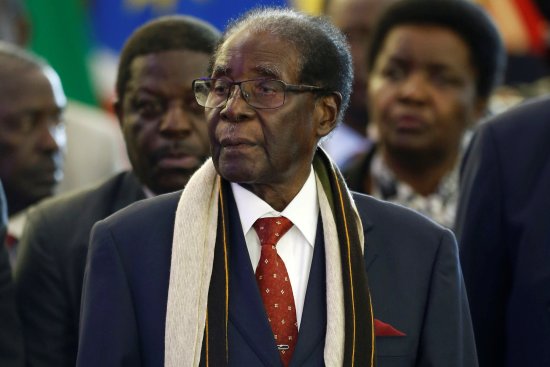
Zimbabwean President Robert Mugabe, 93, was placed under house arrest on Nov. 15 after the military seized control of the country overnight. The move brings closer to an end a power struggle that has gripped the country over who would succeed the world’s oldest head of state after his 37 years in power.
Turf war
The ruling ZANU-PF party has been locked in a battle over who should succeed Mugabe. On one side were supporters of his wife Grace. On the other were war veterans who freed the country from white-minority rule in the 1970s. Mugabe’s undoing began on Nov. 6, when he sacked Vice President Emmerson Mnangagwa, who has close ties to the military, in order to clear his wife’s path to the presidency. But the purge proved too much for the military, which stepped in to push Grace out of the picture.
Tyrant’s rule
Zimbabwe may soon be rid of Mugabe, after decades of repression. Democratically elected in 1980, the former freedom fighter slowly tightened his grip over his people with the military’s backing. Opposition groups were targeted during each election, and in 2000 he let war veterans seize thousands of white-owned farms, leading to the collapse of Zimbabwe’s economy and enriching its corrupt elite. Since then, inflation has periodically spiked chaotically, amid botched attempts at currency controls. More than 70% of Zimbabweans live in poverty.
Bleak future
If Mugabe does end up being removed, there may not be the ray of light Zimbabwe’s beleaguered people are hoping for. The military figures and war veterans behind the “coup” are the very architects of repression who propped up Mugabe’s rule.